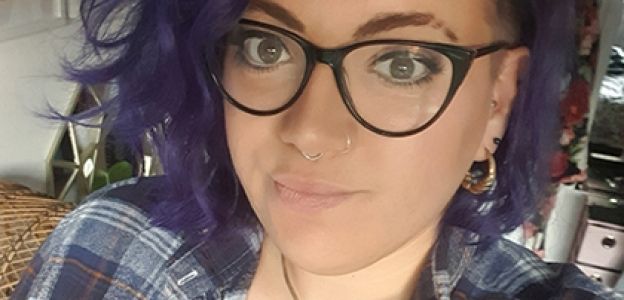We’re here, we’re queer. Can we play? | Sport England

's development manager for volunteering, Sport England As the development manager for volunteering at Sport England, my primary goal is to increase participation in sports and physical activity across England. One of the main ways I achieve this is by working with local partners and organizations to create more opportunities for people to get involved and volunteer in sports. I also strive to encourage a diverse range of individuals to get involved in volunteering. This includes focusing on underrepresented groups, such as women, people with disabilities, and those from low-income backgrounds. By creating inclusive opportunities, we can help ensure that everyone has access to the benefits of sports and physical activity. Finally, I aim to build a sustainable framework for volunteering in sports. This means creating programs that are structured, rewarding, and valued by volunteers. By doing so, we can foster long-term commitments and lasting benefits for individuals, communities, and the wider society.
Each year, people from all around the world, who are part of the LGBTQ+ group or support it, come together in the month of June to celebrate Pride.
Although the origin of Pride can be traced back to the Stonewall riots on the morning of June 28, 1969, the celebration nowadays extends from June to September. During this time, cities, towns, and even entire countries come together to honor and celebrate their LGBTQ+ communities.
When I think about Martha P. Johnston, who is well-known as the pioneer of the Pride movement, I am reminded of her wise advice: "The more confidence you possess, the greater your influence." Additionally, I can't help but reflect on the significant role sports and physical activity have played in boosting my self-assurance.
While I was growing up, I despised physical education due to being a disabled, non-binary, clumsy, bisexual person with a plus-sized body.
Being a teenager with self-awareness was very tiring. Just the act of writing down words to describe myself was also tiring!
Throughout my youth and early adulthood, I couldn't find any relatable sports idols to look up to, causing me to become introverted and conceal my aspirations. This persisted until I reached the age of 22.
I was informed of several health conditions and believed that I didn't have the right to engage in physical activities unless I criticized myself first.
I felt extreme envy towards my companions, particularly my sibling and closest pal, since they both indulged in rugby - the sport I cherish the most.
Next, my nearby squad shared on a Facebook community an available occasion to come and experiment with the sport of rugby.
Dear reader, I have accomplished it!
I grabbed my vibrant pink sneakers, forced a large insincere grin and made my way to the nearby rugby field during a chilly Thursday evening.
The night couldn't have been better.
I was on the field with a group of strong females who identified as queer. They varied in shape and size, with some identifying as non-binary players.
When I was born, I was identified as a female and I don't consume hormones. Due to this, participating in "women's" sports was the most logical option for me. It's a place where I feel included and accepted.
"Physical Activity: Multiple Benefits!"
Engaging in rugby and various other physical activities have greatly improved both my physical and mental wellbeing.
Being in the company of individuals who are eager to engage in games rekindled my happiness and enjoyment.
I used to have a group of friends, opportunities to go out, and the freedom to clear my mind and discover a fresh approach to being in tune with my physical self.
I was rescued from a harmful and sedentary lifestyle by sports, and it's not unexpected that this occurred.
Studies have consistently proven that engaging in physical activity has beneficial effects on our health, encompassing both our physical and mental wellbeing.
A research study focused on the activities of the LGBTQ+ community was conducted some years back by the University of Glasgow and appeared in both the British Journal of Nursing. The findings were truly impressive.
Working out with other members of the LGBTQ+ community provides a more beneficial opportunity to socialize and can significantly improve various aspects of their overall wellness.
It's important to provide numerous chances for LGBTQ+ individuals to participate in physical activity since mental health concerns are so widespread within that community. About half of LGBTIQ+ people reported experiencing depression, and three out of five said they experienced anxiety.
No matter how it appears to you, the advantages are clear to all.
In my personal experience, the mere ability to inhabit my own body without criticism and connect with other individuals who identify as queer, without it being solely based on our shared queerness, has drastically transformed my life. My sentiments are genuine and not expressed lightly.
During this month dedicated to celebrating LGBTQ+ individuals, I encourage you to contemplate your response when someone approaches you with the statement, "I am here, I am a part of the LGBTQ+ community. Am I allowed to participate?"







































